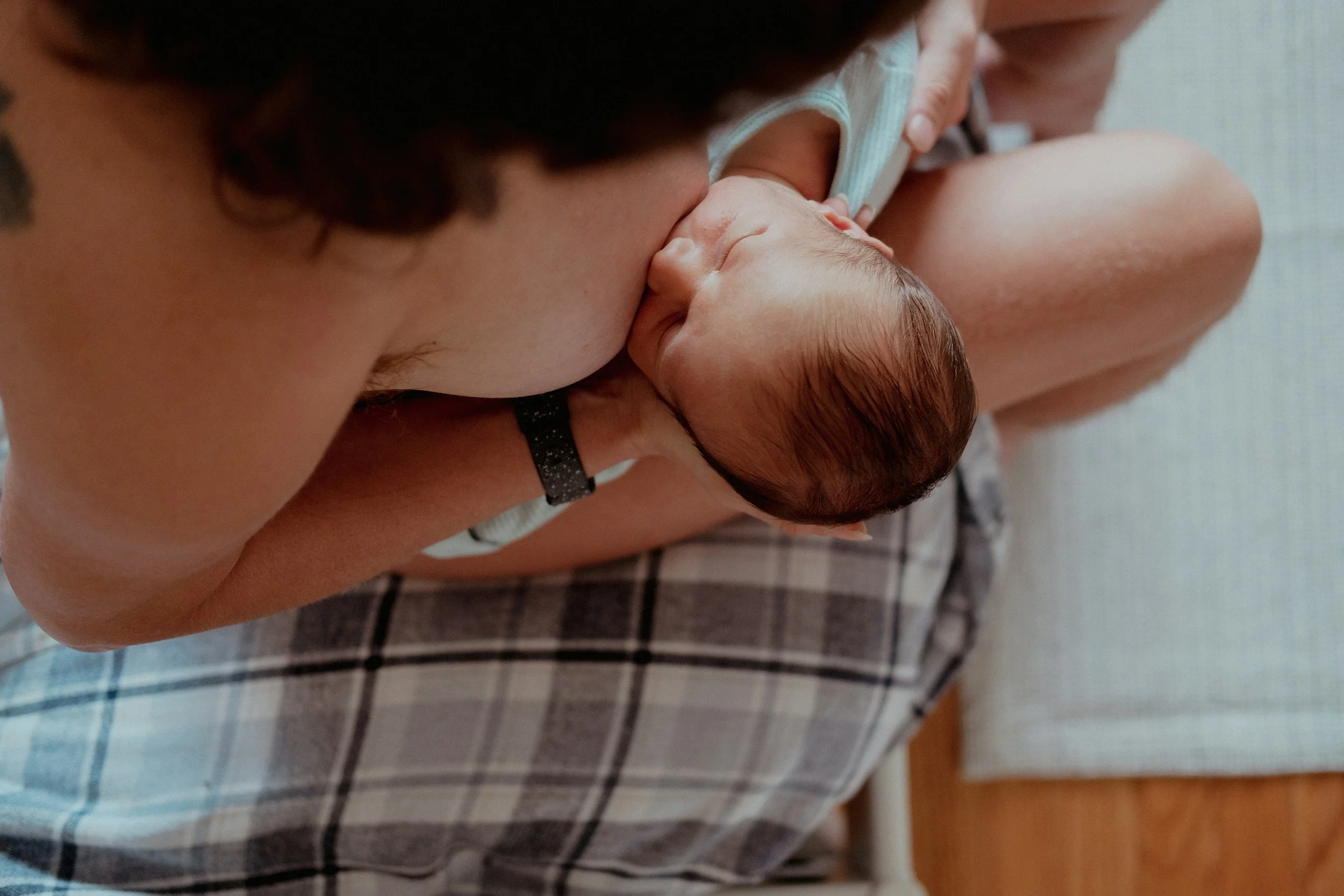What to Expect in Postpartum: Healing, Hormones & The Fourth Trimester
Postpartum—often called the fourth trimester—is a sacred and incredibly transformational time. It’s a season of recovery, bonding, deep emotional shifts, and learning to care for your newborn while adjusting to your new identity as a mother.
Whether this is your first baby or your fourth, each postpartum experience is unique. Here’s what you can expect physically, emotionally, and practically in the first 4–6 weeks after birth.
Physical Recovery
Your body has done miraculous work bringing life into the world, and now it needs time to heal. You may experience:
Vaginal soreness and swelling (especially if you tore or had stitches)
Perineal discomfort and cramping as your uterus shrinks
C-section recovery if you birthed surgically (be mindful of your incision site and lifting limitations)
Lochia (postpartum bleeding) that starts like a heavy period and tapers off over several weeks
Tip: Use your peri bottle and Earth Mama Perineal Spray after bathroom trips to soothe and cleanse. Ice packs and witch hazel pads help ease swelling in the first few days.
Breast & Nipple Changes
Your breasts may feel full, hot, or sore as your milk comes in. You might also notice:
Engorgement
Nipple tenderness
Leaking between feeds
Tip: Wear Silverette Nipple Cups to soothe and protect sore nipples. A good nursing bra and nipple balm (use code anointedbirths for 10% off) are game changers. If you're experiencing nipple pain, cracks, or bleeding, see an IBCLC to check baby’s latch early on.
Hormonal Shifts & Emotional Changes
After birth, hormone levels drop rapidly. This can bring on:
The Baby Blues (feeling tearful, overwhelmed, or anxious in the first two weeks)
Mood swings and irritability
In some cases, postpartum depression or anxiety
Tip: Stay connected. Talk to your partner, your postpartum doula, or a trusted friend. If your sadness persists beyond two weeks, reach out for support. You’re not alone.
Fatigue & Sleep Deprivation
Newborns wake often—especially in the first 6 weeks. Combined with hormonal shifts and physical healing, the exhaustion can feel intense.
Tip: Sleep when baby sleeps (even if it’s just a 20-minute nap). Accept help from others. Let go of the to-do list. Nourish your body with warming, easy-to-digest foods like broths, stews, and teas.
Digestion, Bowels & Urination
Postpartum bowel movements may be delayed due to pain meds, trauma to the area, or fear. You might also notice:
Constipation
Hemorrhoids
Urinary urgency or leakage
Tip: Take a natural stool softener, like magnesium citrate and hydrate often. Eat fiber-rich foods and use a peri bottle every time you go to the bathroom to reduce discomfort and promote healing. Sitz baths (use code anointedbirths for 10% off) with herbal blends can soothe the perineum and hemorrhoids.
Bonding With Your Baby
Bonding is not always instant—and that’s okay. Snuggling, skin-to-skin, eye contact, and babywearing help nurture connection.
Tip: Spend the first 2 weeks mostly at home, cuddled up on the couch or in bed. Talk to your baby, kiss them often, and let yourself fall in love slowly and deeply.
Nourish, Nurture, Nest: Postpartum Wisdom
Inspired by The First Forty Days, these guiding principles support whole-person healing:
Nourish: Warm, nutrient-rich meals like soups, broths, and slow-cooked meats.
Nurture: Prioritize care like massage, chiropractic, acupuncture, belly binding, journaling, and prayer.
Nest: Follow the 5-5-5 rule—5 days in bed, 5 days around bed, 5 days around home. Go slow and honor the stillness.
Top 10 Postpartum Must-Haves
Earth Mama Perineal Spray & Peri Bottle – soothing hygiene after birth
Witch Hazel – for padsicles or hemorrhoid relief
Silverette Nipple Cups – healing for sore nipples
Herbal Sitz Bath – reduces swelling and supports healing
WishGarden AfterEase Tincture – eases postpartum cramps
Warm Socks – helps restore internal warmth
Postpartum Underwear & Heavy Flow Pads – essential for bleeding
Nursing Bras/Tanks – for easy access & comfort
Stool Softener – keeps things moving comfortably
Warm teas, soups, & bone broth – healing and hydrating
Final Thoughts
The postpartum period is tender, powerful, and worthy of protection. As an Orange County postpartum doula and an Orange County birth doula, I encourage you to give yourself permission to heal slowly, ask for help, and stay rooted in grace—not pressure.
If you're navigating postpartum in Orange County and want holistic support—you don’t have to do it alone. We are here to walk alongside you every step of the way.
Anything stated in this blog is not medical advice.
Stay Tuned…
for more tips, stories, and resources on how to have your best birth!
And in the meantime, if you are looking for in-person support in Orange County, LA County, San Diego County, and the Inland Empire, click the button below to schedule your FREE consultation for any of the following services:
Birth Classes
Birth & Postpartum Doula Services
Birth Photography & Videography
Placenta Encapsulation
Lactation Support
Private Birth Planning Sessions
Belly Binding
& More!
CLICK HERE TO SCHEDULE A FREE CONSULTATION
Check out our latest instagram posts!






